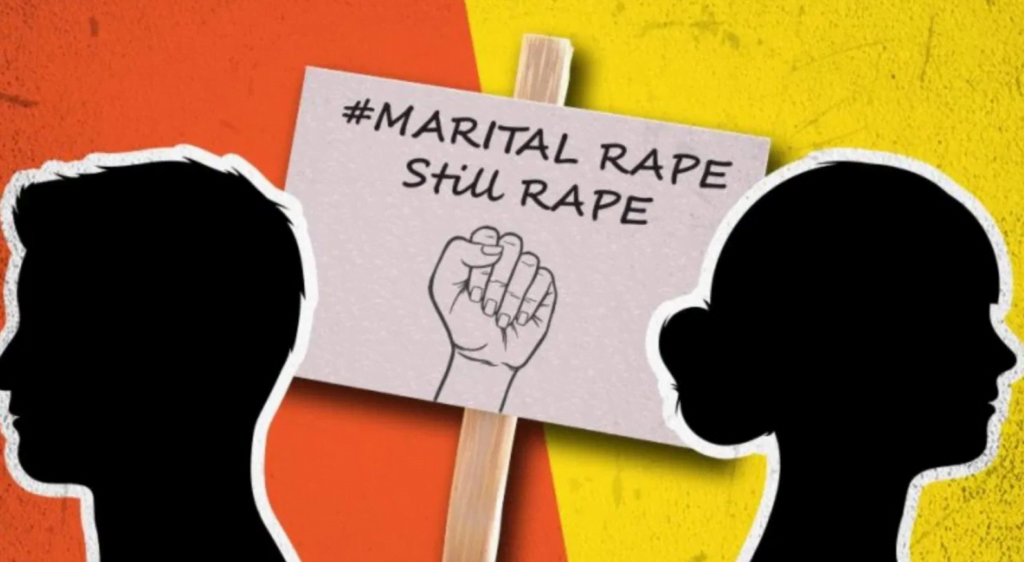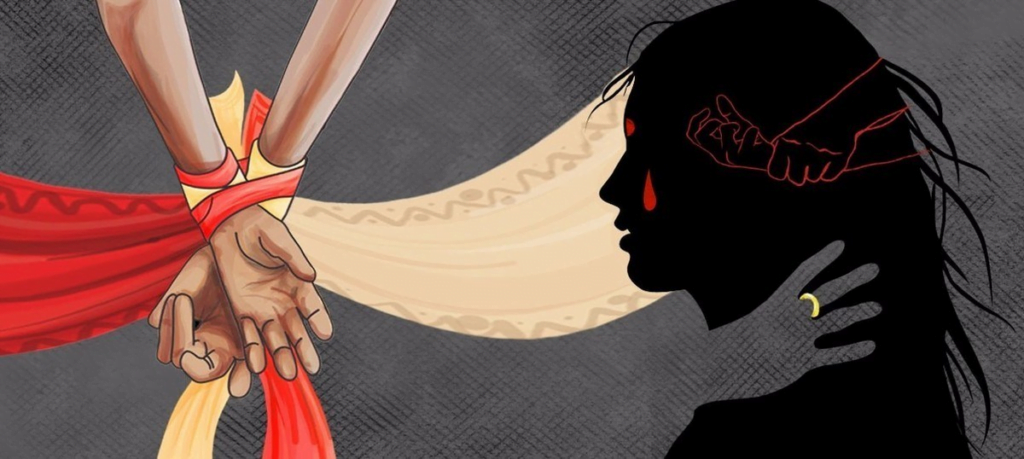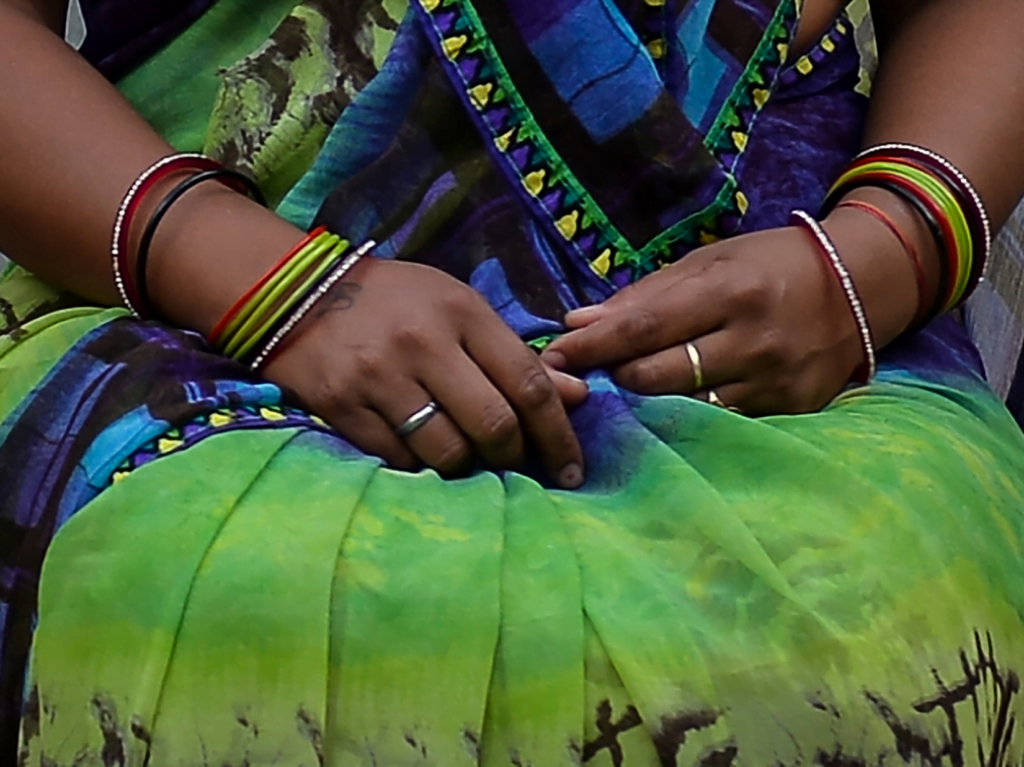What are the arguments against the criminalisation of marital rape?—that is what I Googled. The first result Google threw at me was from a right-wing portal. I will not touch upon how this is the worst possible source because of its biases and propaganda, but I do want to mention the first sentence that I read from it. “Much like every other civilised nation that swallowed the ‘bitter pill’, India too will have to criminalise marital rape.” By calling it a ‘bitter pill‘ one can infer the kind of propaganda-infused, politicised arguments the article would make.
The question about criminalising marital rape came onto the forefront again when the Supreme Court made an important observation while hearing the plea of an unmarried woman seeking an abortion after the 20-24 week period.
According to Live Law ,“On September 29, a bench led by Justice D.Y. Chandrachud in X vs Principal Secretary, Health and Family Welfare Department, Govt of NCT Of Delhi, significantly held that the meaning of rape must be held to include ‘marital rape’ for the purpose of the Medical Termination of Pregnancy Act and Rules.”
Essentially, the court’s bench said that every woman has the right to legal and safe termination of pregnancy and that it also includes marital rape.

Background
A bench led by Justice Ajay Rastogi said that several petitions were pending in the apex court and they would be listed together for a hearing in February 2023. The Supreme Court on Friday, September 16, 2022, sought a response from the central government on these appeals.
These appeals follow a split decision from the Delhi High Court on whether or not to prosecute husbands for non-consensual sex with their wives. The petitioners were allowed to move the apex court.
The law itself can find its roots in British jurist Sir Matthew Hale’s unsupported extra-judicial statement made in 1736 that says, “But the husband cannot be guilty of a rape committed by himself upon his lawful wife, for by their mutual matrimonial consent and contract the wife hath given up herself in this kind unto her husband, which she cannot retract.”
This is one of the most used arguments indicating (falsely) again that consent is perpetual in a marriage. On similar lines, the Union Government in its submission to the Delhi High Court in January 2022 also stated that criminalising rape would compromise the institution of marriage and make it easier for women to harass their husbands
This is enshrined in the Indian Penal Code Section 375 under exceptions. This law is 162 years old and reads, “Sexual intercourse by a man with his own wife, the wife not being under fifteen years of age, is not rape.” When one reads, it is difficult to not compare it with an amendment to the section which defines rape also as sex “With or without her consent when she is under sixteen years of age”. Both from the societal and moral lenses, the same act becomes permissible if the woman is above the age of 15 and is bound by a matrimonial contract.
Therein lies the first contradiction in my opinion. This translated to me as if the woman signs away the right to protect her body when she marries. The amendment also explains that penetration in itself constitutes the sexual intercourse necessary to the offence of rape. However, when the victim is the wife, the arguments for the perpetrator circle around ambiguity of context rather than the absence or withdrawal of consent.
Also read: Does Marriage Justify Rape?: The Delhi High Court’s Split Verdict On Criminalising Marital Rape

Deep-rooted problem
The two-judge Delhi High Court Bench that delivered the split verdict was headed by Justice Rajiv Shakdar, who struck down the provision as unconstitutional the exception to Section 375. But the plea to criminalise marital rape was rejected by Justice C. Hari Shankar, who was part of the bench. He said that any change in the law should be taken up by the legislature because social, cultural and legal concerns are imperative to the issue.
Reproducing the quotes from the verdict would have written the article by itself, but analysing the statistics help define the depth of the problem. Justice Shakhdar relied on the National Family Health Survey’s findings to inform his verdict.
The arguments against the exceptions under the Section 375 of the IPC all fall under the umbrella of the constructs of morality and social responsibility. The destruction of family and the institution of marriage is a popular fallacy. Sex within marriage is also treated as sacred in these arguments, and that this would allow for invasion of privacy. The absence of women in the two-judge bench of the Delhi High Court is also a testament to how marital rape is viewed from the husband’s point of view rather than the wife’s in a heteronormative lens
The survey indicates that instigators of sexual violence are most often known to women in intimate relationships. The 2019-21 NFHS report shows that “among ever-married women aged 18-49 who have ever experienced sexual violence, 83 per cent report their current husband and 13 per cent report a former husband as perpetrators”.
UN Women (in 2018) estimated that one in seven women had experienced physical or sexual violence from an intimate partner or husband. The International Men Gender Equality Survey conducted by International Centre for Research on Women noted that 1 in 5 men forced their wife or partner to have sexual intercourse with them.
The data also shows that 20 per cent of Indian men admit that they forced their wives or partners to have sex. Data collected by the National Commission for Women in India, further highlights that domestic violence against women increased significantly during the lockdown in 2020, by 79 per cent from 2019.
Since marital rape is yet to be criminalised in India, specific data does not exist. Presently, a victim can in theory seek redressal under the criminal law related to domestic violence.

Consent and conflicting opinions
An organisation called Men Welfare Trust has been opposing the petitions seeking criminalisation of marital rape. According to one of their representatives, “Sexual intercourse between a husband and wife could not be treated at par with that in non-marital relationships as the issue of consent could not be divorced from the context of a marriage.”
This is one of the most used arguments indicating (falsely) again that consent is perpetual in a marriage. On similar lines, the Union Government in its submission to the Delhi High Court in January 2022 also stated that criminalising rape would compromise the institution of marriage and make it easier for women to harass their husbands.
In his verdict, Justice Shadkar noted that “the right to withdraw consent at any given point in time forms the core of the woman’s right to life and liberty which encompasses her right to protect her physical and mental being.” Contrast this with Justice Shankar’s comments on the petition—“consent is given as a part of spousal intimacy although the will to engage may be absent.”
He goes on to make statements that could further dilute victims’ claims by comments on visible injuries that could be used as proof. In layperson’s terms he meant that injuries may indicate sexual liberation or BDSM as well, not necessarily the absence of consent. His statement on requiring a legislative course also highlighted another argument that criminalisation of marital rape may lead to abuse of legal remedies and the impact of it on the husband’s dignity.
The arguments against the exceptions under the Section 375 of the IPC all fall under the umbrella of the constructs of morality and social responsibility. The destruction of family and the institution of marriage is a popular fallacy. Sex within marriage is also treated as sacred in these arguments, and that this would allow for invasion of privacy. The absence of women in the two-judge bench of the Delhi High Court is also a testament to how marital rape is viewed from the husband’s point of view rather than the wife’s in a heteronormative lens.
Also read: A Critical Look At The Indian Govt’s Resistance To Criminalise Marital Rape
These social arguments assume that consent at marriage is for the entire duration of the relationship, coerced sex is part of marriage, and that the institution is puritanical and should not be prodded by laws.
Why is it that when we have a landmark right-to-privacy judgment (Supreme Court) that determines the right to privacy as one which begins with one’s body and decisional autonomy, statistics to prove that intimate partners often commit sexual violence, Article 14 of the Indian Constitution which protects people’s right to equality, and marital rape violates that right of a married woman, and the mention of forced sexual cohabitation as a violation of the fundamental right under Article 21, that arguments around marital rape are solely based on assumed sacrilege and patriarchal understanding of consent?
About the author(s)
Anam is a content marketing strategist based in Europe. Her writing is derived from lived experiences, keen observation and distinctive thought. She believes in the power of discourse and unlearning.





Only problem I have is that women can’t be trusted with such laws.seek divorce if you don’t like to be in a marriage.
With prevalent false cases of dowry and fake cases of domestic violence, now we need false cases of marital rape to destroy men’s lives. Men should not get married in this day and age, with draconian and biased laws which are aimed at harassing husbands after a divorce, from extortion from husband’s family of many lacs of rupees, alimony, child support, women getting child custody, not letting fathers see their children, paternity fraud, you name it.
I forgot to mention wives robbing husbands of 50% of their assets/property after a divorce.